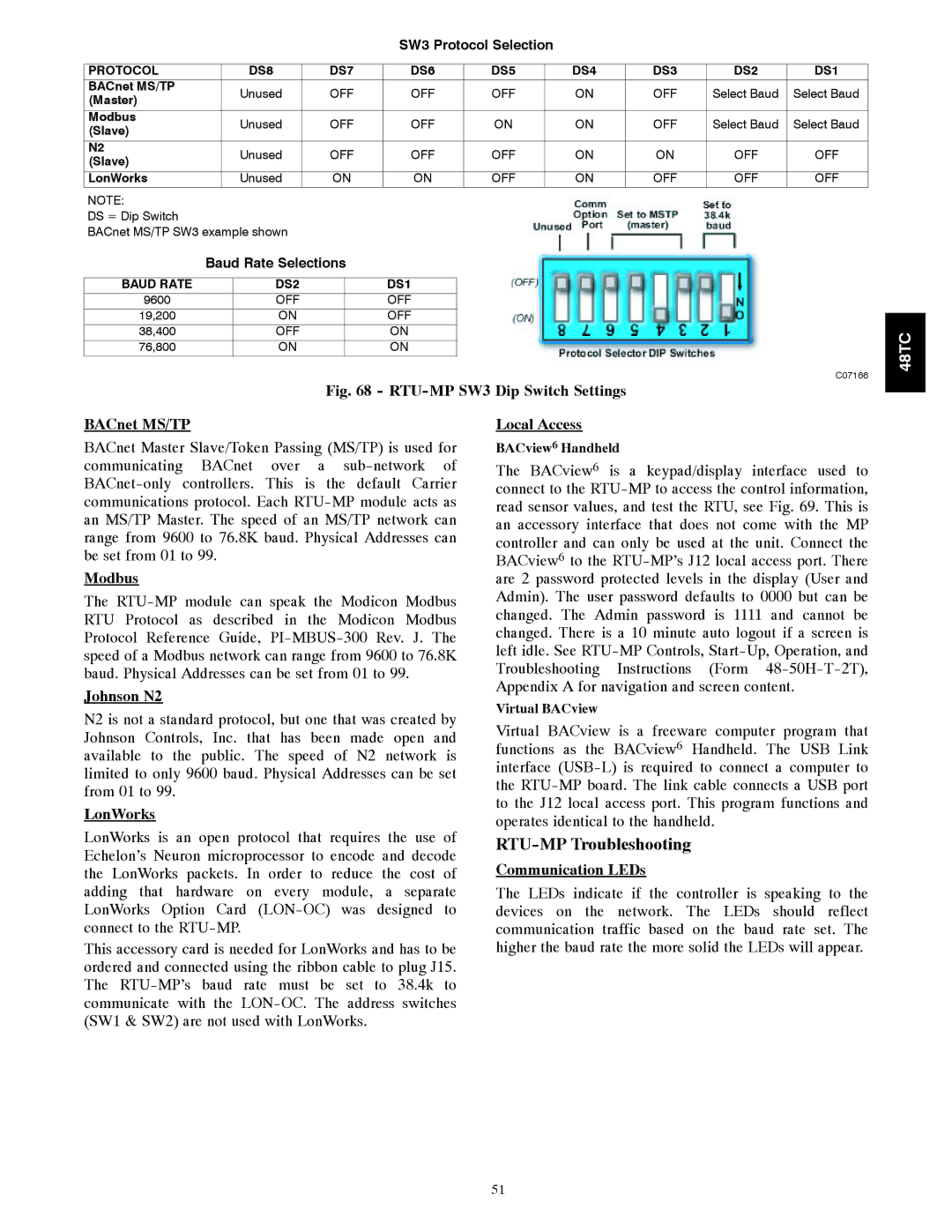
SW3 Protocol Selection
|
|
|
|
|
|
|
|
| |
PROTOCOL | DS8 | DS7 | DS6 | DS5 | DS4 | DS3 | DS2 | DS1 | |
BACnet MS/TP | Unused | OFF | OFF | OFF | ON | OFF | Select Baud | Select Baud | |
(Master) | |||||||||
|
|
|
|
|
|
|
| ||
|
|
|
|
|
|
|
|
| |
Modbus | Unused | OFF | OFF | ON | ON | OFF | Select Baud | Select Baud | |
(Slave) | |||||||||
|
|
|
|
|
|
|
| ||
|
|
|
|
|
|
|
|
| |
N2 | Unused | OFF | OFF | OFF | ON | ON | OFF | OFF | |
(Slave) | |||||||||
|
|
|
|
|
|
|
| ||
|
|
|
|
|
|
|
|
| |
LonWorks | Unused | ON | ON | OFF | ON | OFF | OFF | OFF | |
NOTE: |
|
|
|
|
|
|
|
| |
DS = Dip Switch |
|
|
|
|
|
|
|
|
BACnet MS/TP SW3 example shown
Baud Rate Selections
BAUD RATE | DS2 | DS1 |
9600 | OFF | OFF |
19,200 | ON | OFF |
38,400 | OFF | ON |
76,800 | ON | ON |
C07166
Fig. 68 - RTU-MP SW3 Dip Switch Settings
48TC
BACnet MS/TP
BACnet Master Slave/Token Passing (MS/TP) is used for communicating BACnet over a
Modbus
The
Johnson N2
N2 is not a standard protocol, but one that was created by Johnson Controls, Inc. that has been made open and available to the public. The speed of N2 network is limited to only 9600 baud. Physical Addresses can be set from 01 to 99.
LonWorks
LonWorks is an open protocol that requires the use of Echelon’s Neuron microprocessor to encode and decode the LonWorks packets. In order to reduce the cost of adding that hardware on every module, a separate LonWorks Option Card
This accessory card is needed for LonWorks and has to be ordered and connected using the ribbon cable to plug J15. The
Local Access
BACview6 Handheld
The BACview6 is a keypad/display interface used to connect to the
Virtual BACview
Virtual BACview is a freeware computer program that functions as the BACview6 Handheld. The USB Link interface
RTU-MP Troubleshooting
Communication LEDs
The LEDs indicate if the controller is speaking to the devices on the network. The LEDs should reflect communication traffic based on the baud rate set. The higher the baud rate the more solid the LEDs will appear.
51
